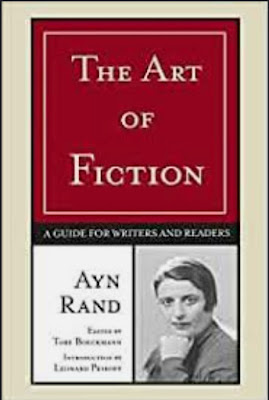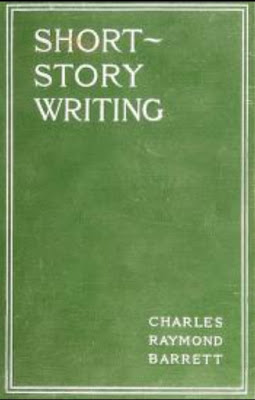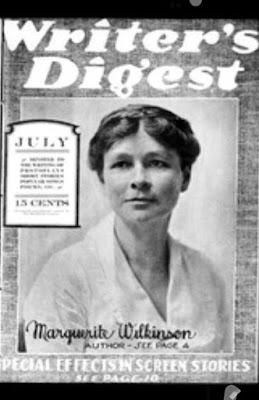A Handbook on Story Writing
by
Williams, Blanche Colton, 1879-1944
FOREWORD
In the vast world of literature, stories hold a special place. They have the power to transport us to different realms, evoke a wide range of emotions, and challenge our perceptions of reality. Within the realm of storytelling, the art of crafting a compelling and engaging narrative is a true craft. It requires a delicate balance of imagination, creativity, and technical prowess.
It is with great pleasure that I introduce "A Handbook on Story Writing" by Blanche Colton Williams. This insightful and comprehensive guide is an invaluable tool for both aspiring and seasoned writers looking to master the art of storytelling. Drawing from her vast experience as a teacher, author, and literary critic, Williams offers a wealth of knowledge that will inspire and guide writers of all levels.
The beauty of this handbook lies in its ability to provide practical and actionable advice while also celebrating the boundless possibilities of storytelling. Williams begins by delving into the fundamental elements of storytelling, emphasizing the importance of plot, character development, and setting. She then proceeds to delve into the nuances of crafting dialogue utilizing symbolism and creating vivid descriptions that captivate readers' imaginations.
Throughout the manual, Williams skillfully interweaves examples from renowned works of literature, offering insightful analysis and shedding light on the techniques employed by successful storytellers. Her ability to dissect and explain the intricacies of storytelling not only educates but also sparks the writer's imagination, encouraging them to explore new avenues within their own creative process.
One notable aspect of this handbook is the attention given to the different genres and the distinct requirements each presents. Williams provides valuable advice on how to develop mystery, romance, science fiction, and other popular genres, ensuring that writers can confidently navigate the diverse landscape of storytelling.
As readers, we often find solace in stories that allow us to escape the confines of our daily lives and embark on thrilling adventures. With "A Handbook on Story Writing, Williams offers writers the tools to create these transformative experiences for their readers. Whether one aspires to pen an epic fantasy, a thought-provoking literary masterpiece, or a heartwarming children's tale, this handbook serves as a compass guiding writers towards their storytelling goals.
Blanche Colton Williams has dedicated her life to the study and appreciation of literature, and her passion radiates through these pages. Her deep understanding of the craft, coupled with her ability to convey complex concepts in an approachable manner, makes "A Handbook on Story Writing" an essential companion for any writer seeking to hone their skills and make their mark in the literary world.
It is my sincere belief that this handbook will serve as a beacon of guidance and inspiration to writers of all backgrounds. May it empower you to embark on your storytelling journey with confidence, and may your words find their rightful place in the hearts of readers around the world.
Olivia Salter
03/07/2022
PREFACE
WHEN in 1910 I undertook the "teaching" of the
short-story to a class of undergraduates at Hunter
College, I found a dearth of books on the theory of
story writing. There were Poe's examples and his
body of criticism, from which help might be deduced; there was the pioneer "Philosophy" of Professor Matthews, and there were two or three texts
whose chief valye lay in their exposition of the genre.
After no great length of time a growing suspicion
asserted itself that although my students could write
unusually well, frequently with suggestion of charm
and power, yet they were not always writing stories.
They fell short of modern narrative requirement.
, As first aid they needed some formulation of the laws
of structure. By a frankly academic and deductive
process, that is to say, by study of the classic stories
and the best current examples, I found obvious underlying principles, so obvious, my first reaction was
that nobody had written them down because of their
obviousness. But I gave them to my students, with
happy results in improvement of manuscripts. The
writers learned to direct their energies, with a diminution of diffuseness, to the accomplishment of
stronger stories.
CONTENTS
I Definitions and Characterisations
II The Inception of the Story
III Plot: Preliminaries
IV Plot: Struggle and Complication
V Plot: Composition
VI Plot: Story Types Dependent on Plot Order
VII The Point of View
VIII The Scenario
IX Characterisation
X Characterisation, continued
XI Dialogue
XII The Emotional Element
XIII Local Colour and Atmosphere
XIV Problems of Composition: Beginning, Body, and End
XV A Short-Story Type: The Ghost Story
XVI Popularity and Longevity
Index
The PDF might take a minute to load. Or, click to download PDF.
If your Web browser is not configured to display PDF files.
No worries, just click here to download the PDF file.
A Handbook on Story Writing by Williams, Blanche Colton, 1879-1944











.jpg)











